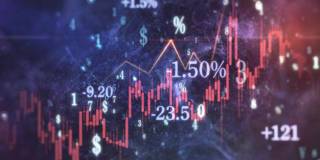OnPoint Subscriber Exclusive

Nouriel Roubini
Says More…
This week, PS talks with Nouriel Roubini, Professor Emeritus of Economics at New York University’s Stern School of Business, Chief Economist at Atlas Capital Team, CEO of Roubini Macro Associates, Co-Founder of TheBoomBust.com, and the author of MegaThreats: Ten Dangerous Trends That Imperil Our Future, and How to Survive Them.
Project Syndicate: In your latest PS commentary, you reaffirmed your expectation that monetary authorities’ efforts to rein in inflation will “cause both an economic and a financial crash,” and that “regardless of their tough talk,” central banks “will feel immense pressure to reverse their tightening” once that crash materializes. What would the impact of such a reversal be? Do monetary policymakers in the United States and Europe have any good – or less bad – options?
Nouriel Roubini: Central banks are in both a stagflation trap and a debt trap. Amid negative aggregate supply shocks that reduce growth and increase inflation, they are damned if they do and damned if they don’t. If they increase interest rates enough to bring inflation down to 2%, they will cause a severe economic hard landing. And if they don’t – attempting instead to protect growth and jobs – they will be left increasingly far behind the curve, leading to a de-anchoring of inflation expectations and a wage-price spiral.
Very high debt ratios (both private and public) complicate the dilemma further. Raising interest rates enough to crush inflation causes not only an economic crash, but also a financial crash, with highly leveraged private and public debtors facing severe distress. The resulting financial turmoil that intensifies the recession, creating a vicious cycle of deepening recession and escalating financial pain and debt distress.